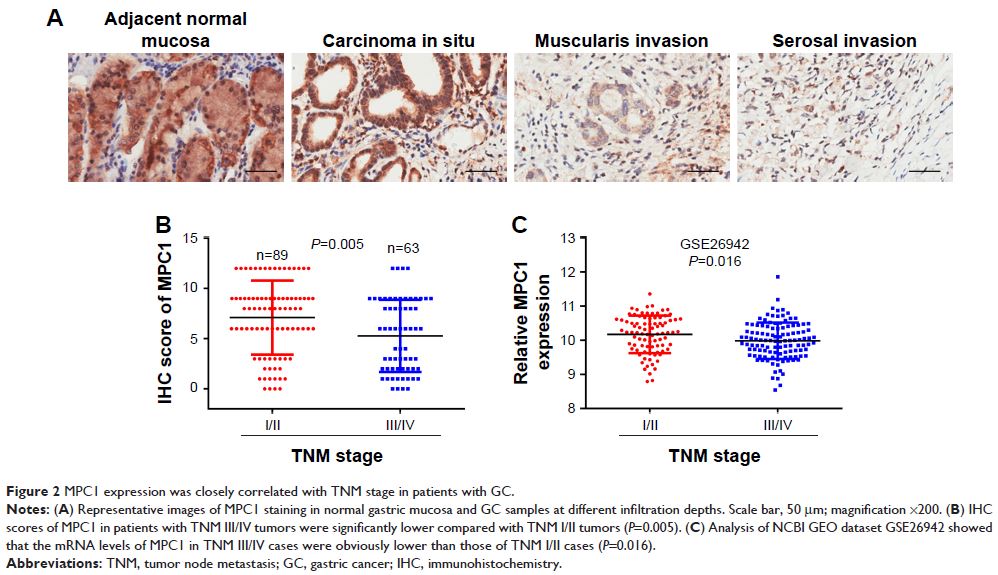108985
论文已发表
注册即可获取德孚的最新动态
IF 收录期刊
- 3.4 Breast Cancer (Dove Med Press)
- 3.2 Clin Epidemiol
- 2.6 Cancer Manag Res
- 2.9 Infect Drug Resist
- 3.7 Clin Interv Aging
- 5.1 Drug Des Dev Ther
- 3.1 Int J Chronic Obstr
- 6.6 Int J Nanomed
- 2.6 Int J Women's Health
- 2.9 Neuropsych Dis Treat
- 2.8 OncoTargets Ther
- 2.0 Patient Prefer Adher
- 2.2 Ther Clin Risk Manag
- 2.5 J Pain Res
- 3.0 Diabet Metab Synd Ob
- 3.2 Psychol Res Behav Ma
- 3.4 Nat Sci Sleep
- 1.8 Pharmgenomics Pers Med
- 2.0 Risk Manag Healthc Policy
- 4.1 J Inflamm Res
- 2.0 Int J Gen Med
- 3.4 J Hepatocell Carcinoma
- 3.0 J Asthma Allergy
- 2.2 Clin Cosmet Investig Dermatol
- 2.4 J Multidiscip Healthc

MPC1 的过表达可抑制胃癌细胞的增殖、迁移、侵袭和干细胞样特性
Authors Zhou X, Xiong ZJ, Xiao SM, Zhou J, Ding Z, Tang LC, Chen XD, Xu R, Zhao P
Received 9 August 2017
Accepted for publication 26 September 2017
Published 24 October 2017 Volume 2017:10 Pages 5151—5163
DOI https://doi.org/10.2147/OTT.S148681
Checked for plagiarism Yes
Review by Single-blind
Peer reviewers approved by Dr Colin Mak
Peer reviewer comments 2
Editor who approved publication: Dr Tohru Yamada
Abstract: Invasion and metastasis are
major malignant characteristics of human gastric cancer (GC), but the molecular
mechanisms underlying the invasion and metastasis of GC cells remain elusive.
MPC1, a key factor that controls pyruvate transportation through the inner
mitochondrial membrane, was reported to be downregulated and correlated with
poor prognosis in several cancers. However, the effects of MPC1 on human GC
have not been illustrated. In this study, we investigated the potential role of
MPC1 in the proliferation, migration, invasion, and stem cell-like properties
of human GC cells and evaluated its prognostic significance for patients with
GC. We found that MPC1 protein and mRNA levels were significantly decreased in
GC tissues and cell lines. Low MPC1 expression was associated with tumor T
stage, N stage, and advanced tumor node metastasis stage. Decreased MPC1
expression was an independent prognostic marker and correlated with poor
overall survival of patients with GC. Furthermore, overexpression of MPC1 inhibited
the proliferation, migration, invasion, and stem cell-like properties of GC
cells. These findings suggest that MPC1 may be a novel prognostic marker and a
potential therapeutic target in human GC.
Keywords: gastric cancer,
invasion, migration, MPC1, proliferation
